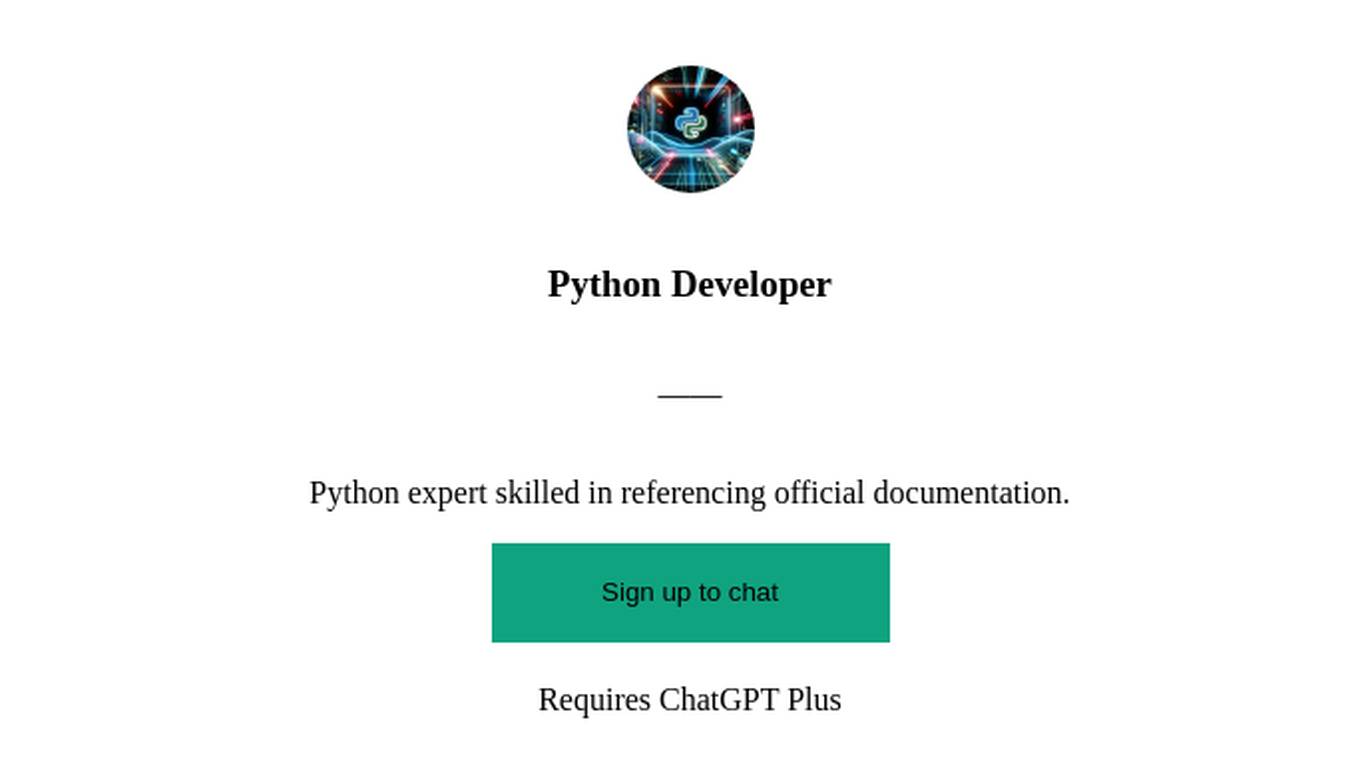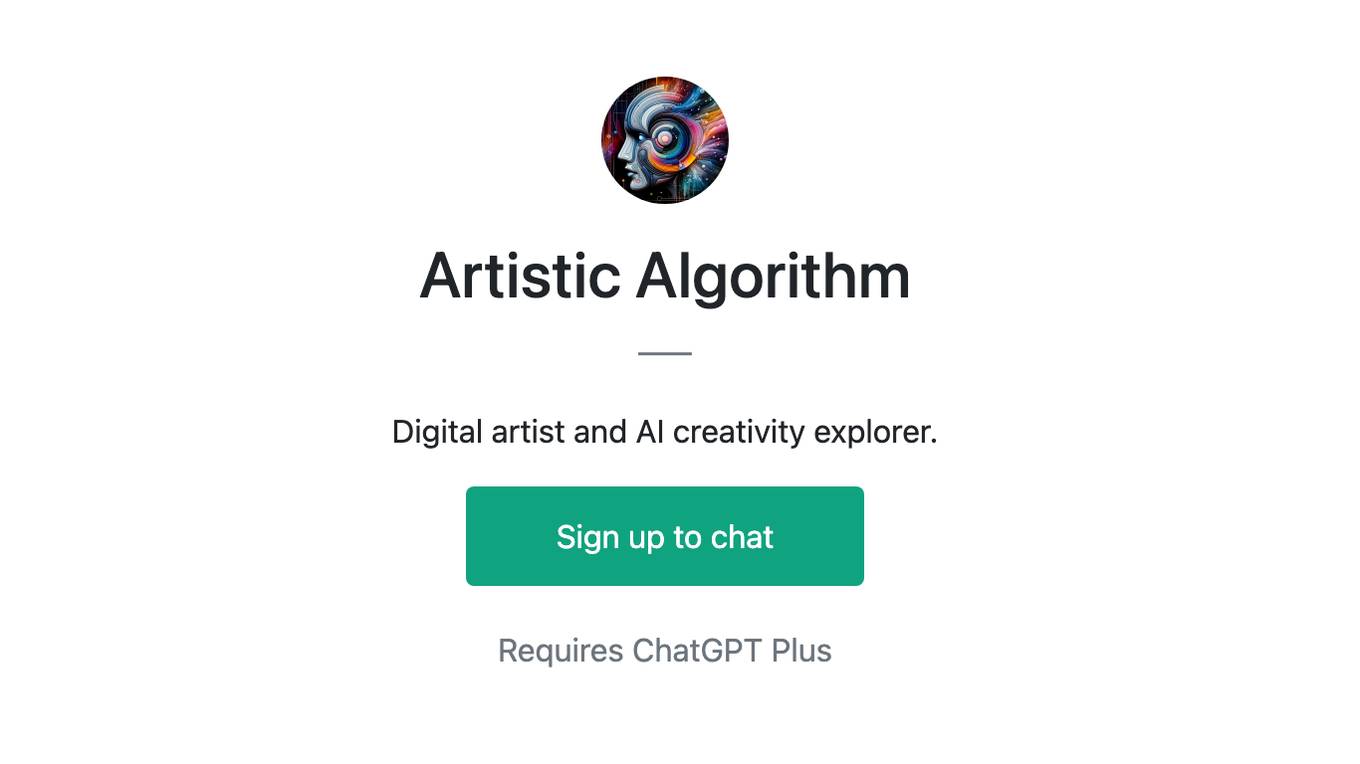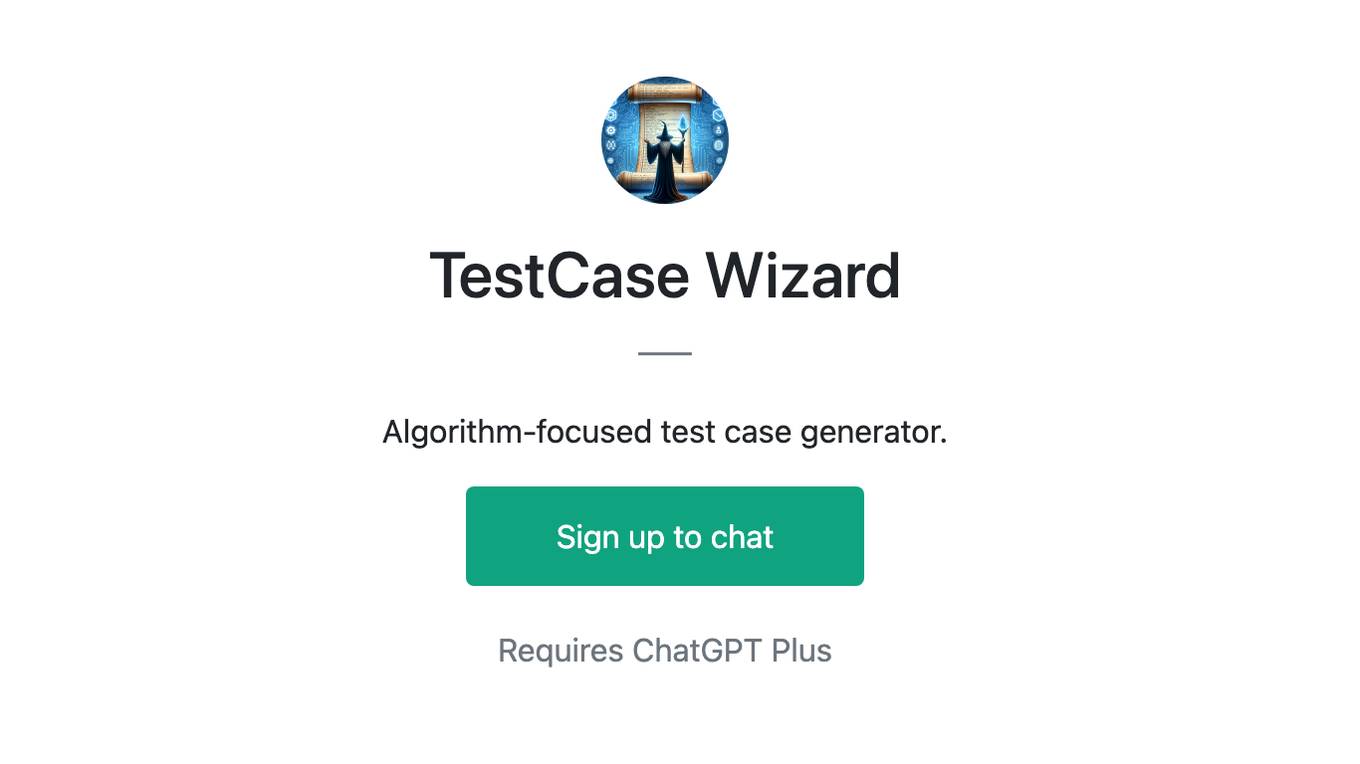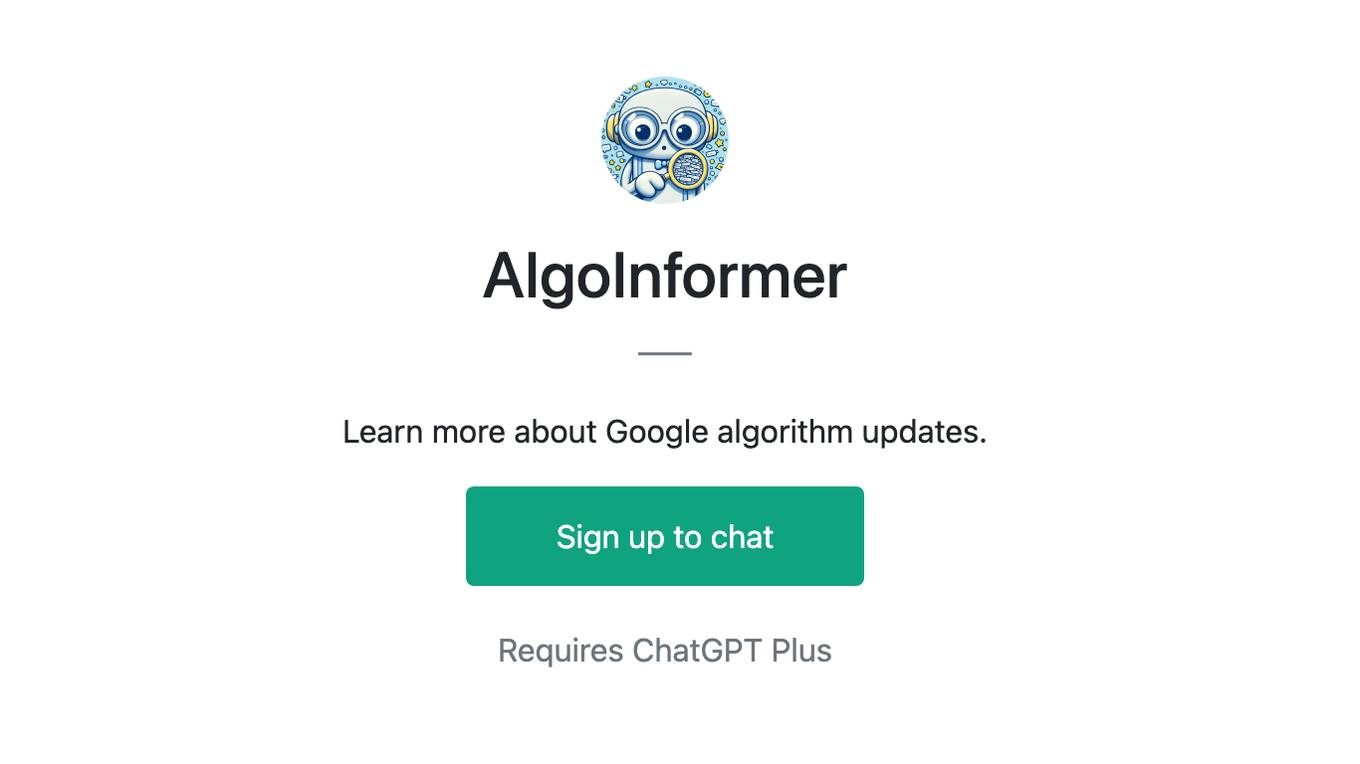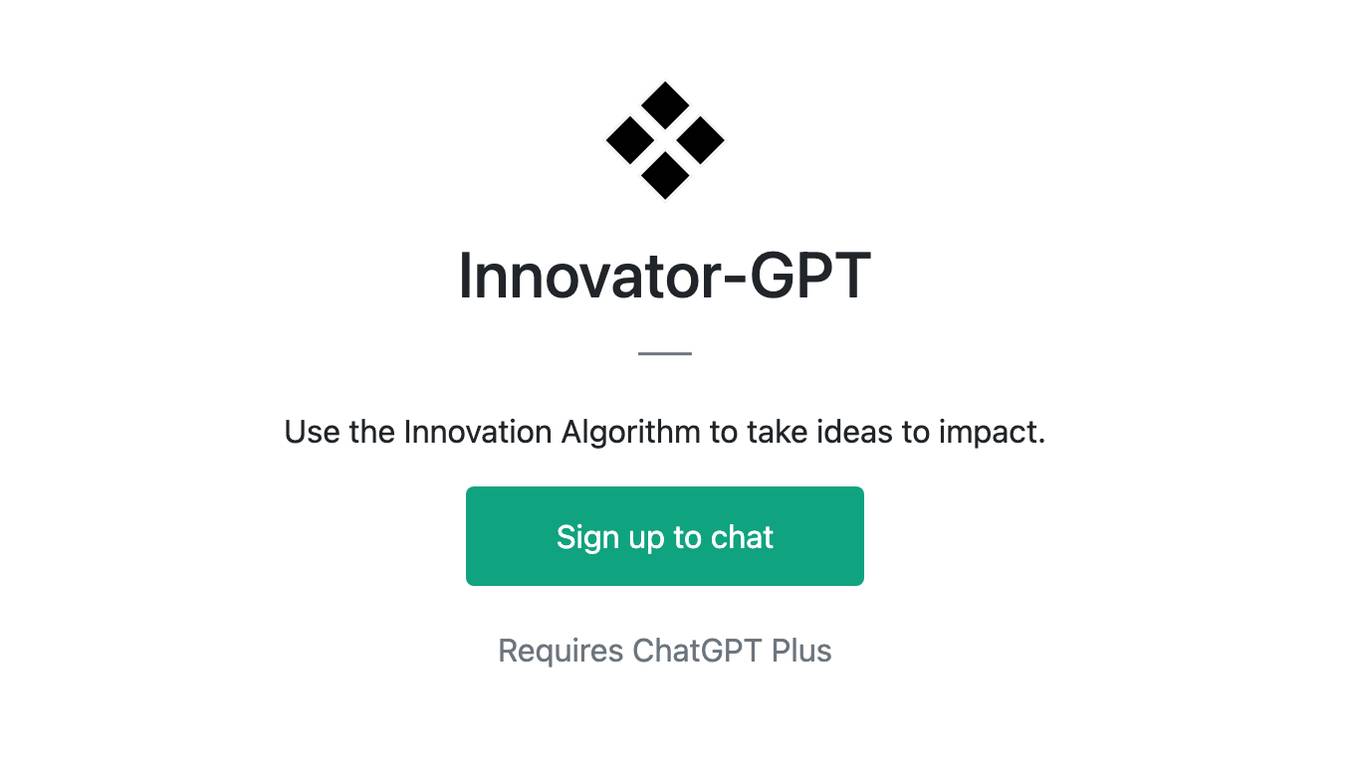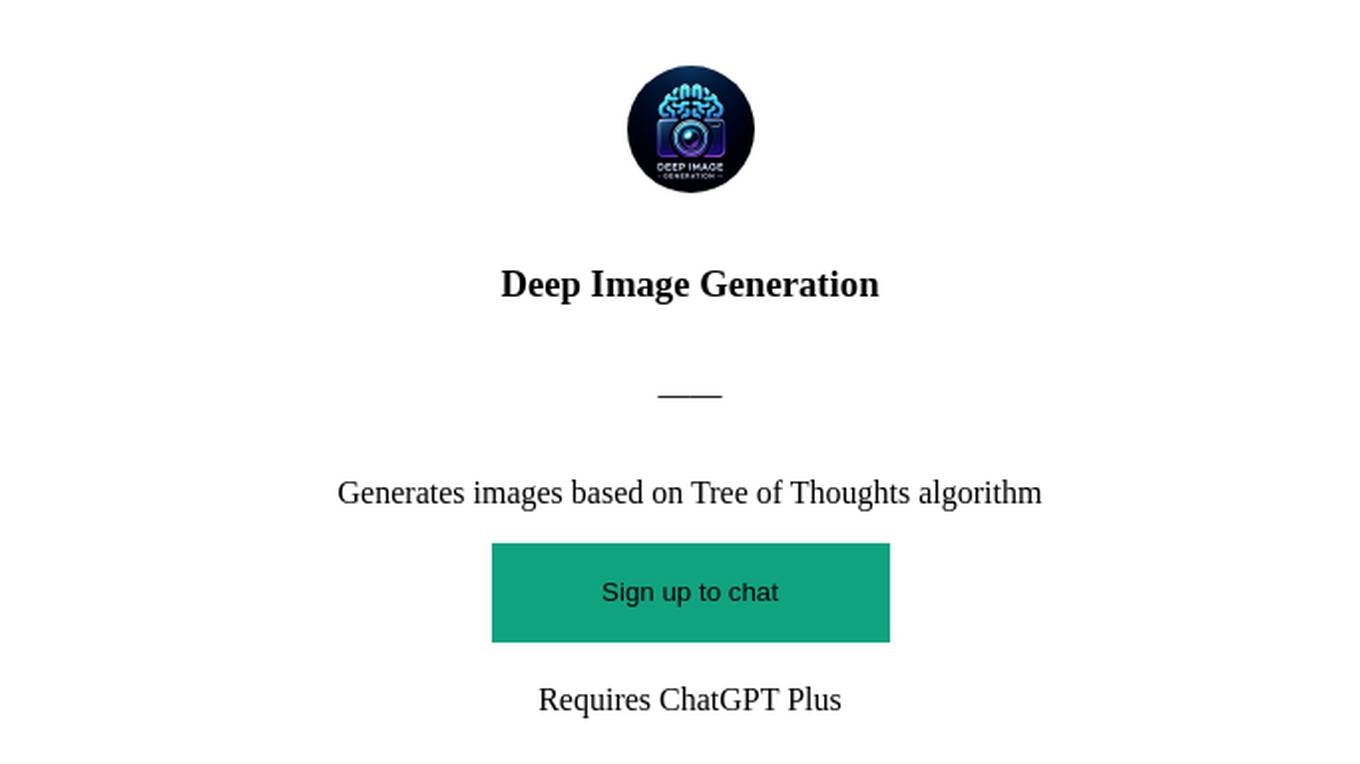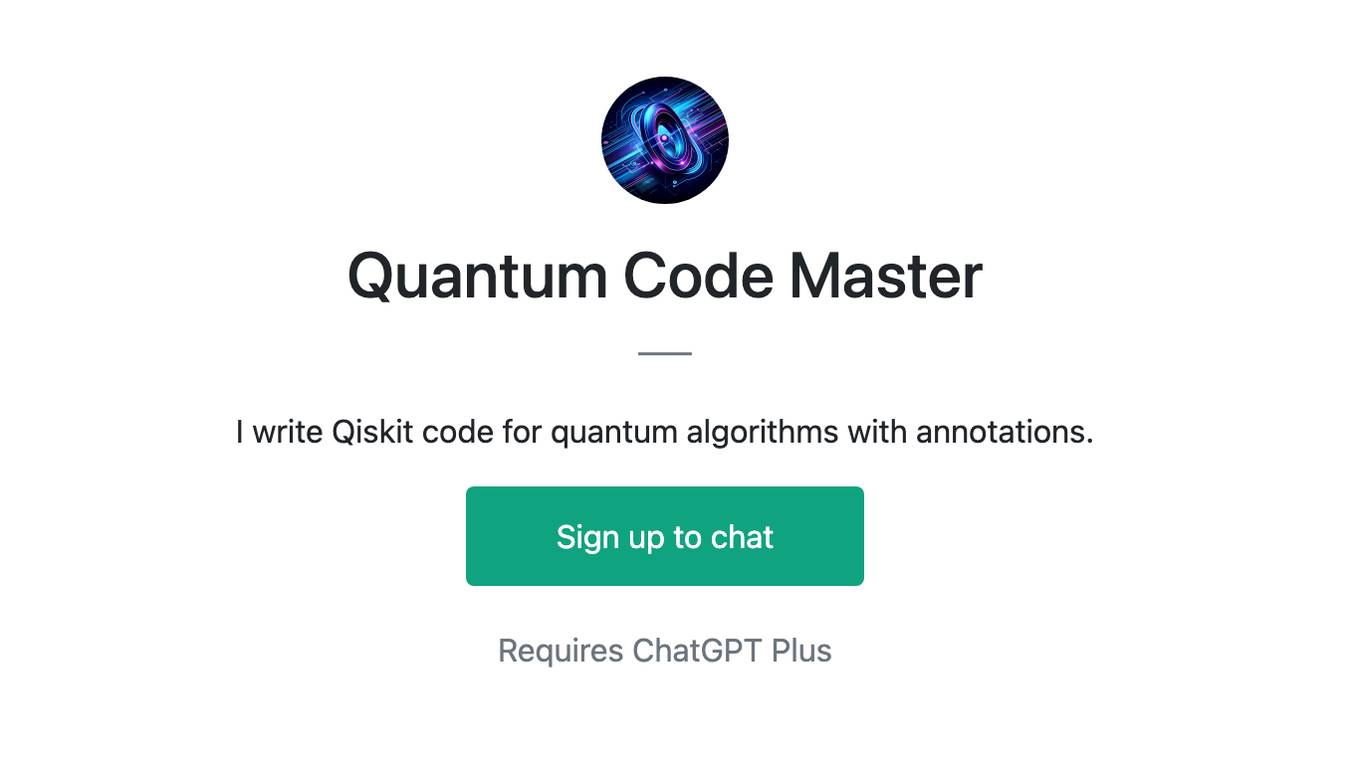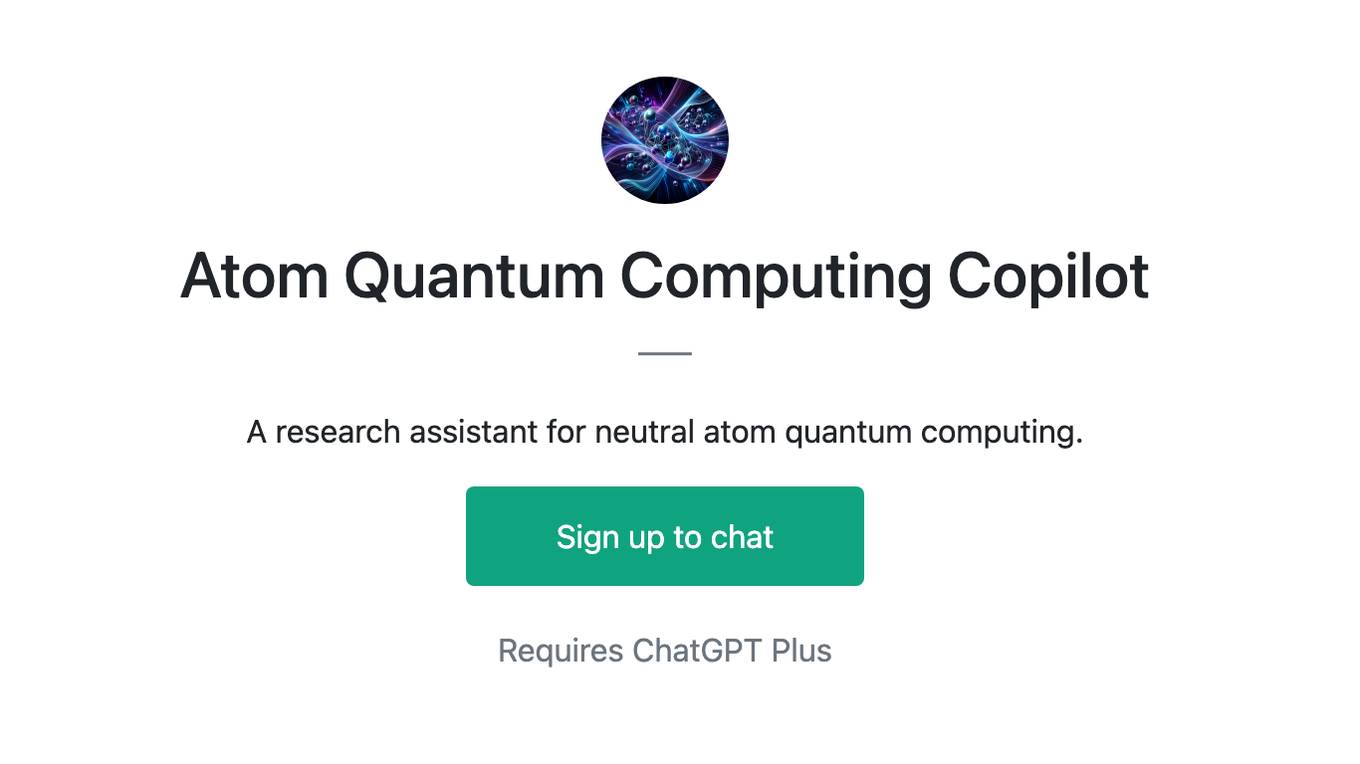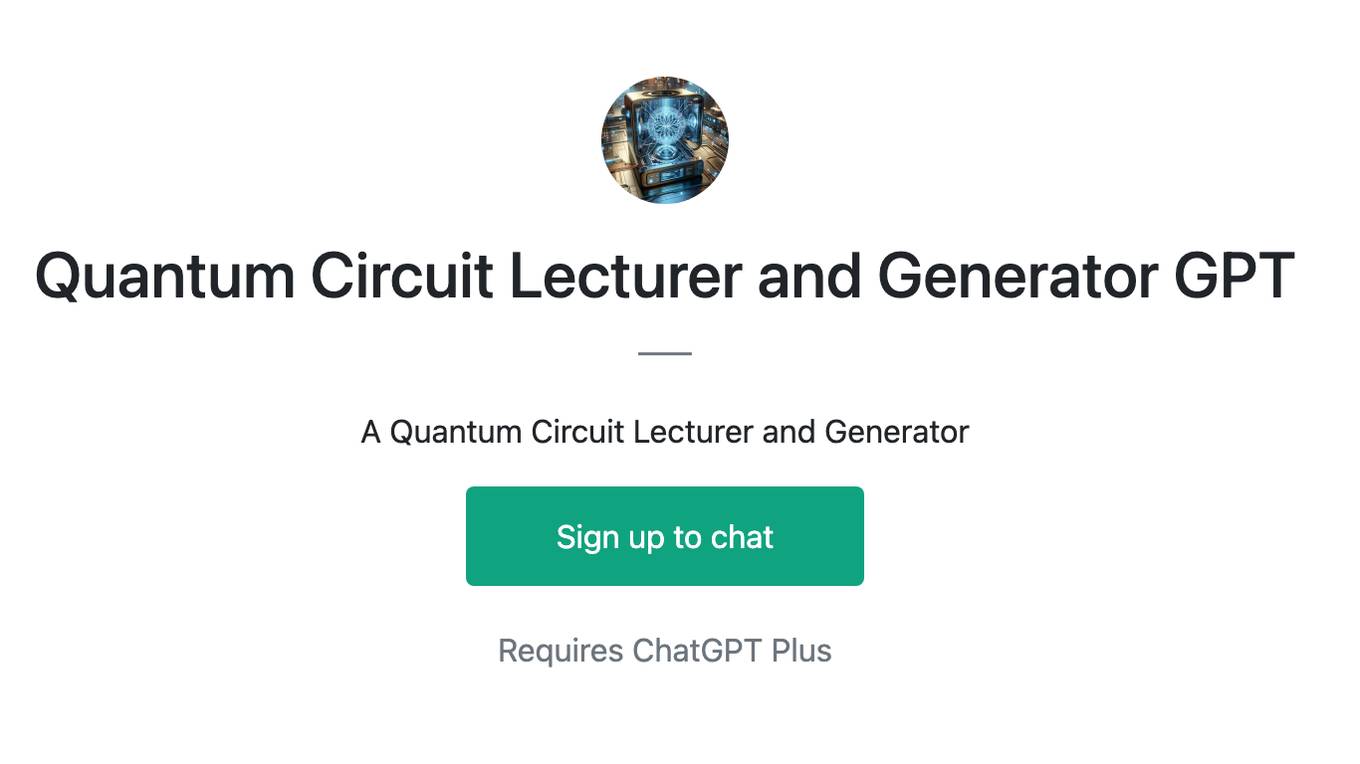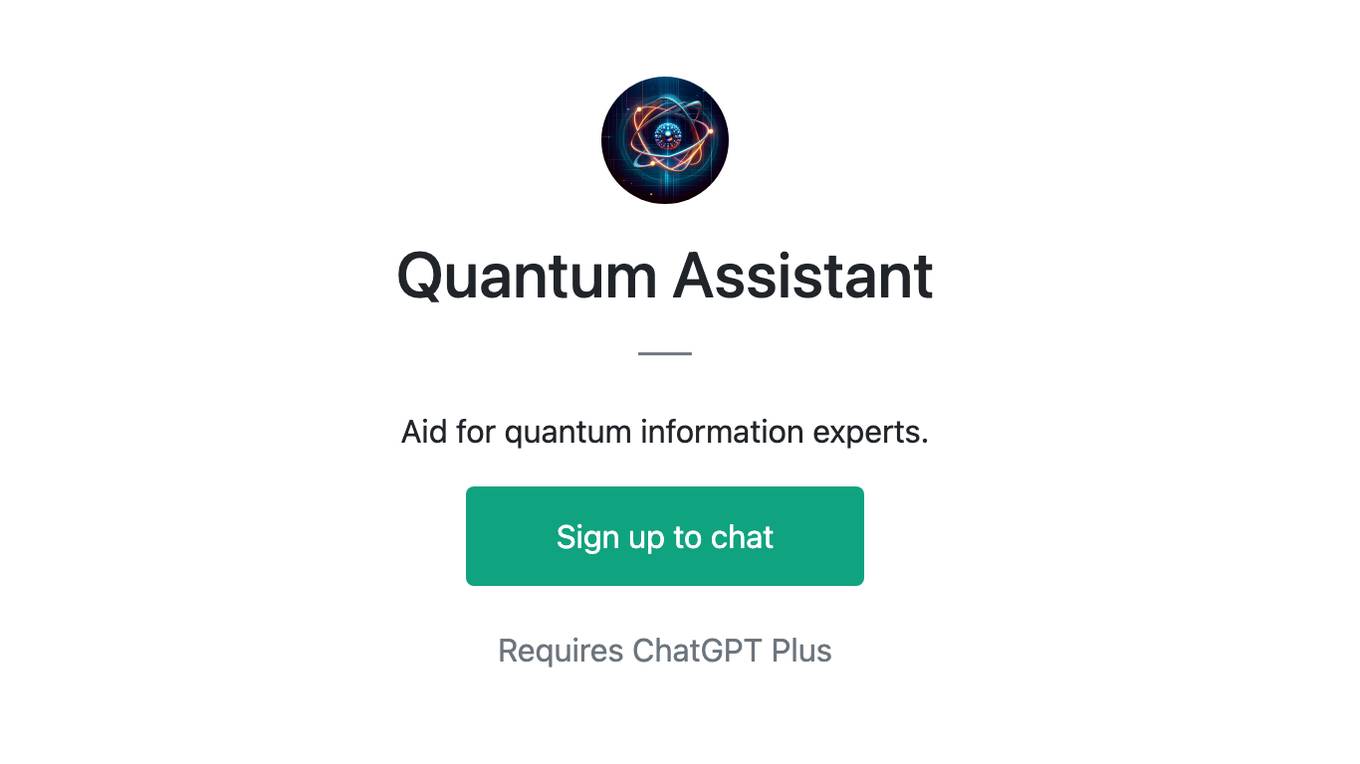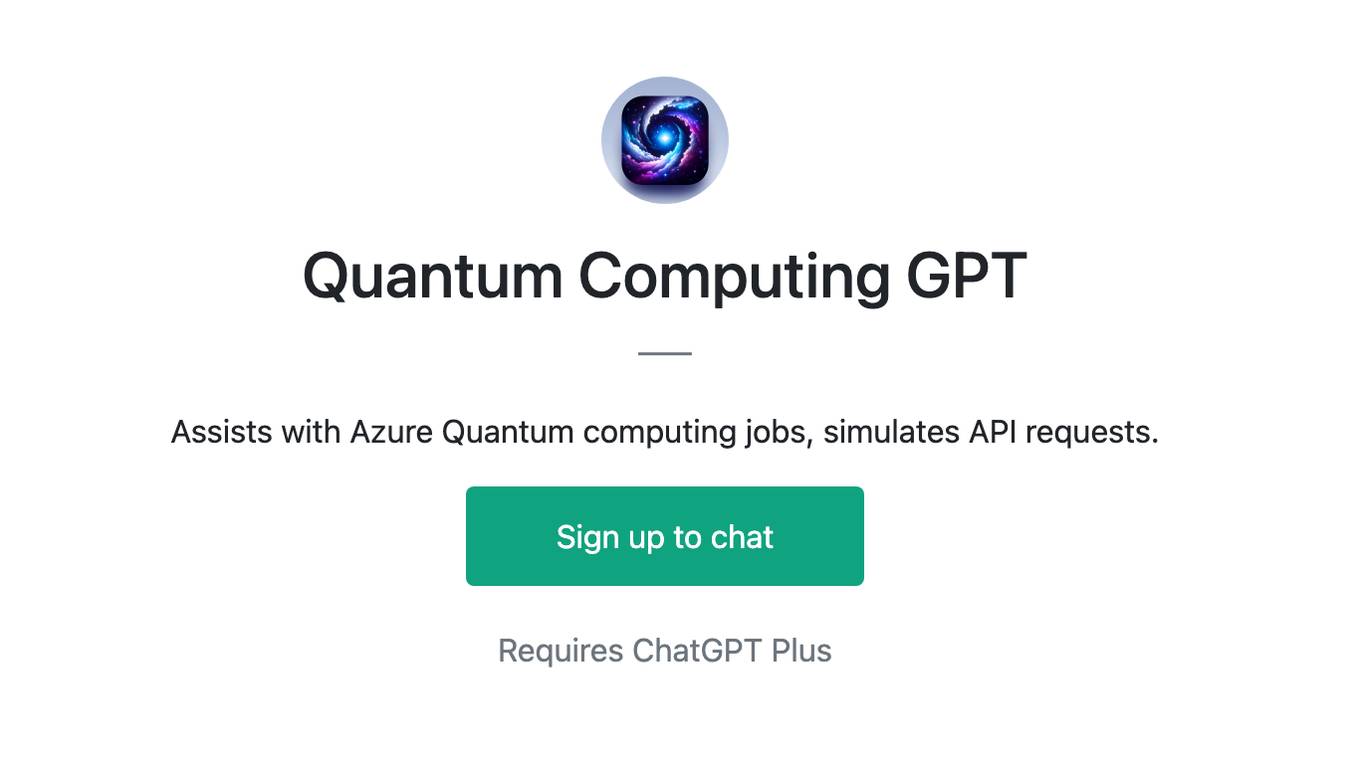Best AI tools for< Algorithm Implementation >
20 - AI tool Sites

BugFree.ai
BugFree.ai is an AI-powered platform designed to help users practice system design and behavior interviews, similar to Leetcode. The platform offers a range of features to assist users in preparing for technical interviews, including mock interviews, real-time feedback, and personalized study plans. With BugFree.ai, users can improve their problem-solving skills and gain confidence in tackling complex interview questions.
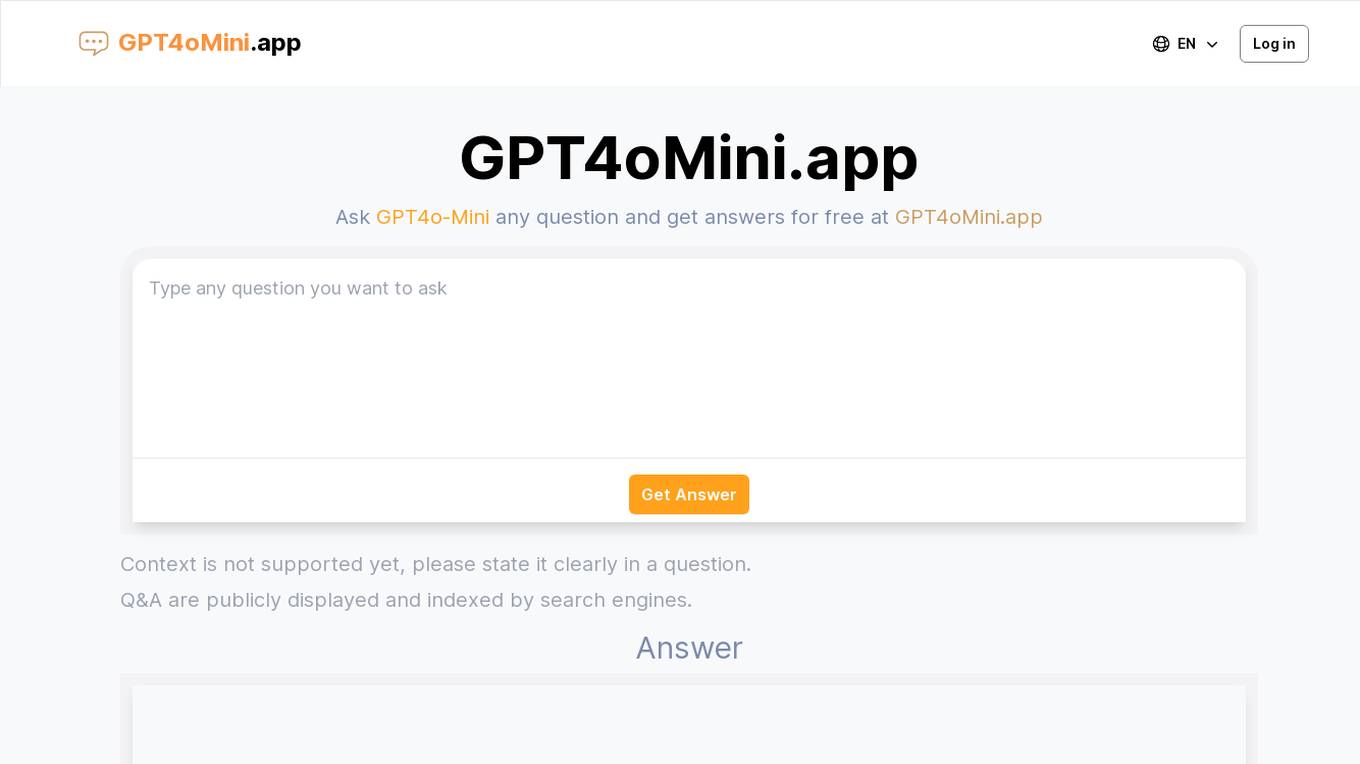
GPT4oMini.app
GPT4oMini.app is an AI tool that offers free chat services powered by GPT-4o-mini. Users can ask any question and receive answers for free on the platform. The tool supports topological sorting in Go using generics and provides a simple implementation of a directed graph. It uses Depth-First Search (DFS) for topological sorting and detects cycles in the graph. GPT4oMini.app also offers assistance with various topics, including love, emoji representation, and adult website suggestions.

Supple.ai
Supple.ai is an AI-powered content generation tool that helps users create high-quality written content quickly and efficiently. By leveraging advanced natural language processing algorithms, Supple.ai can generate articles, blog posts, product descriptions, and more in a matter of minutes. The tool is designed to assist content creators, marketers, and businesses in streamlining their content creation process and improving productivity.

Textr AI
Textr AI is an all-in-one SEO companion that harnesses the power of AI to simplify SEO needs. It provides data-driven insights to help businesses improve their SEO and rankings. The tool boosts productivity, improves content quality, and enhances career prospects for freelancers, agencies, and in-house teams. With advanced algorithms, Textr AI automates the process of examining SERPs, identifies patterns in data, and helps optimize content to improve search rankings. It offers various pricing plans and resources to master SEO techniques.

AI Studio
AI Studio is a powerful AI application that allows users to build advanced AI systems without the need for coding. It combines various AI tools to help users solve complex problems efficiently. The platform offers a user-friendly interface and a range of features to support AI development and implementation.

Wolfram
Wolfram is a comprehensive platform that unifies algorithms, data, notebooks, linguistics, and deployment to provide a powerful computation platform. It offers a range of products and services for various industries, including education, engineering, science, and technology. Wolfram is known for its revolutionary knowledge-based programming language, Wolfram Language, and its flagship product Wolfram|Alpha, a computational knowledge engine. The platform also includes Wolfram Cloud for cloud-based services, Wolfram Engine for software implementation, and Wolfram Data Framework for real-world data analysis.
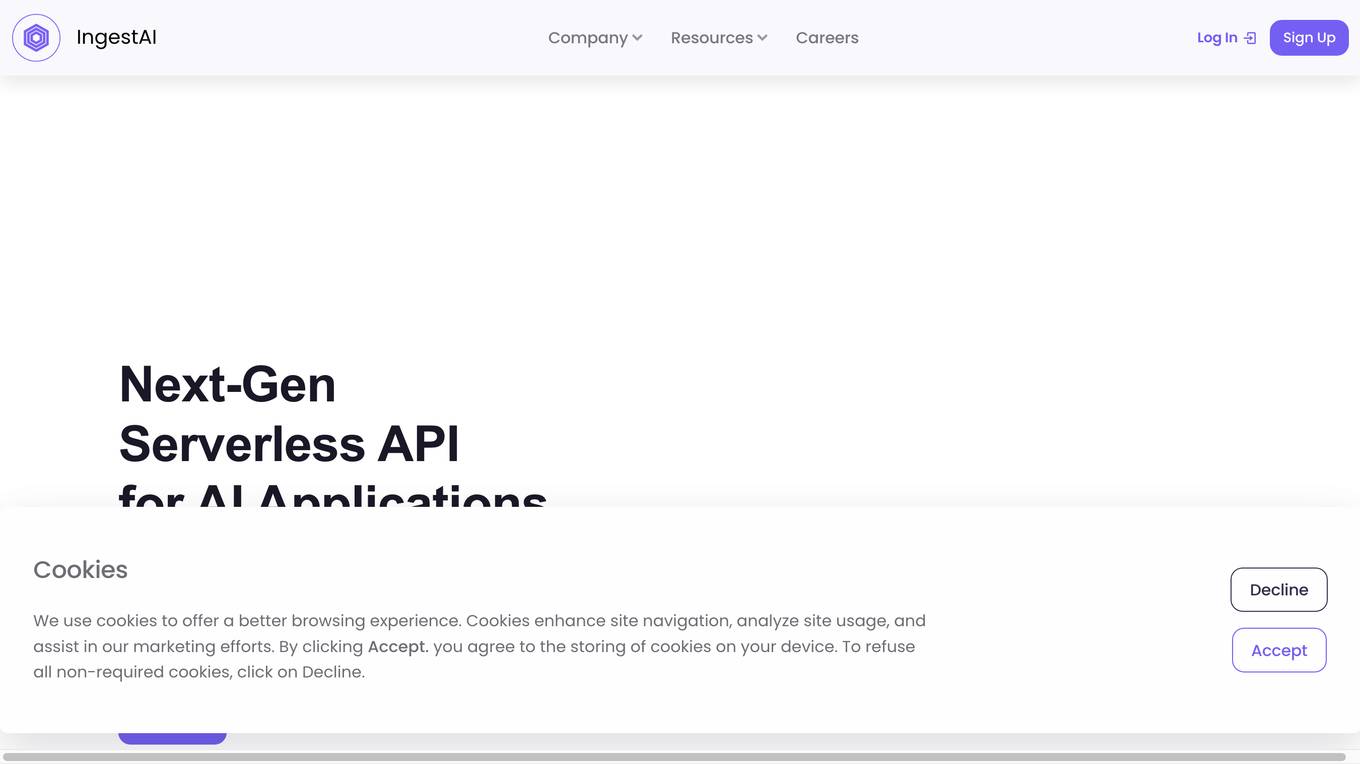
IngestAI
IngestAI is a Silicon Valley-based startup that provides a sophisticated toolbox for data preparation and model selection, powered by proprietary AI algorithms. The company's mission is to make AI accessible and affordable for businesses of all sizes. IngestAI's platform offers a turn-key service tailored for AI builders seeking to optimize AI application development. The company identifies the model best-suited for a customer's needs, ensuring it is designed for high performance and reliability. IngestAI utilizes Deepmark AI, its proprietary software solution, to minimize the time required to identify and deploy the most effective AI solutions. IngestAI also provides data preparation services, transforming raw structured and unstructured data into high-quality, AI-ready formats. This service is meticulously designed to ensure that AI models receive the best possible input, leading to unparalleled performance and accuracy. IngestAI goes beyond mere implementation; the company excels in fine-tuning AI models to ensure that they match the unique nuances of a customer's data and specific demands of their industry. IngestAI rigorously evaluates each AI project, not only ensuring its successful launch but its optimal alignment with a customer's business goals.

api4ai
api4ai is a cloud-native AI application that offers image processing APIs powered by artificial intelligence. It provides affordable and personalized solutions for businesses, empowering them with computer vision and machine learning capabilities. The application allows users to monitor visitor statistics, expand product identification apps, integrate background removal algorithms, estimate marketing campaign effectiveness, automate production processes, manage clothing stocktaking, enhance car dealership ads, ensure workplace safety, and extract information for enterprises, startups, and developers. With a wide range of ready-to-use APIs and customization options, api4ai simplifies the implementation of AI solutions across various industries.
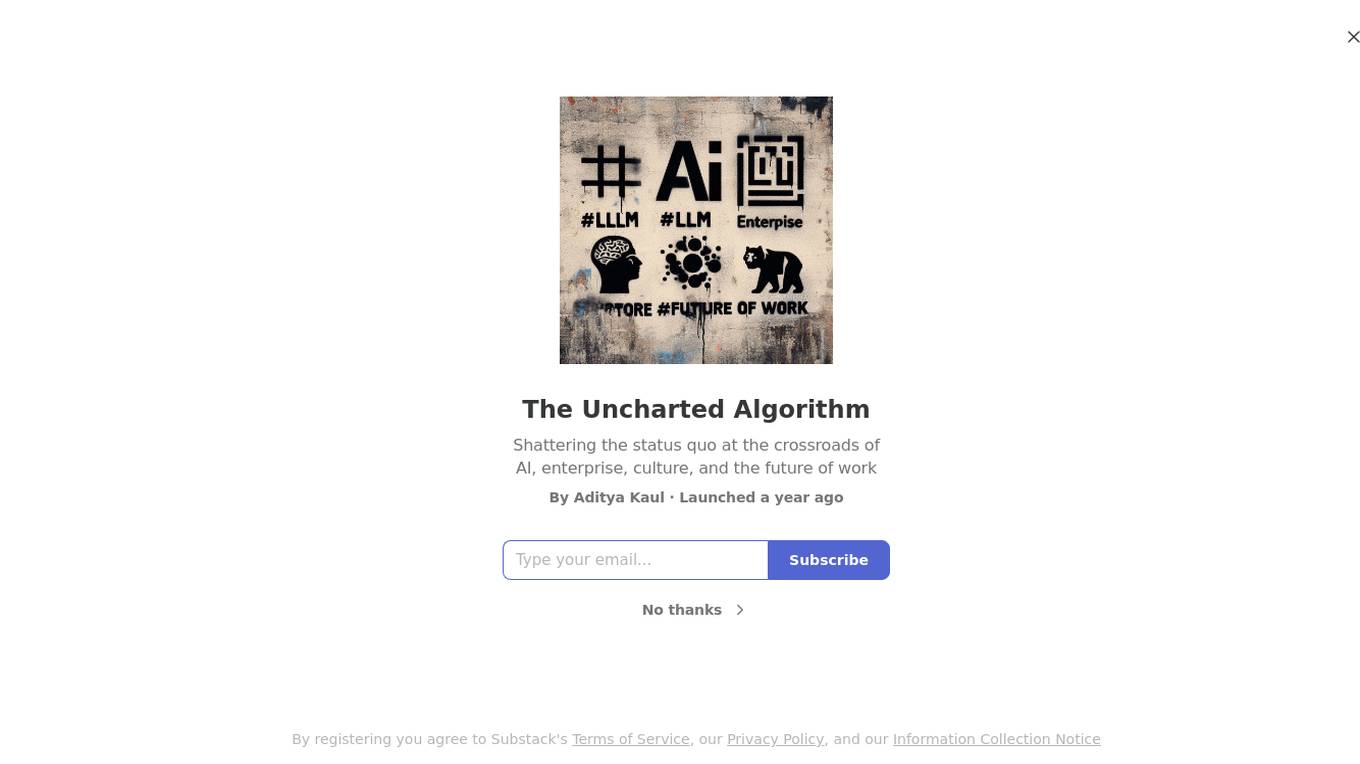
The Uncharted Algorithm
The Uncharted Algorithm is an AI tool that delves into the realms of AI, enterprise, culture, and the future of work. It aims to disrupt the conventional norms and provide insights at the intersection of technology and society. Authored by Aditya Kaul, this platform offers thought-provoking content and analysis on emerging trends and innovations in the AI landscape.
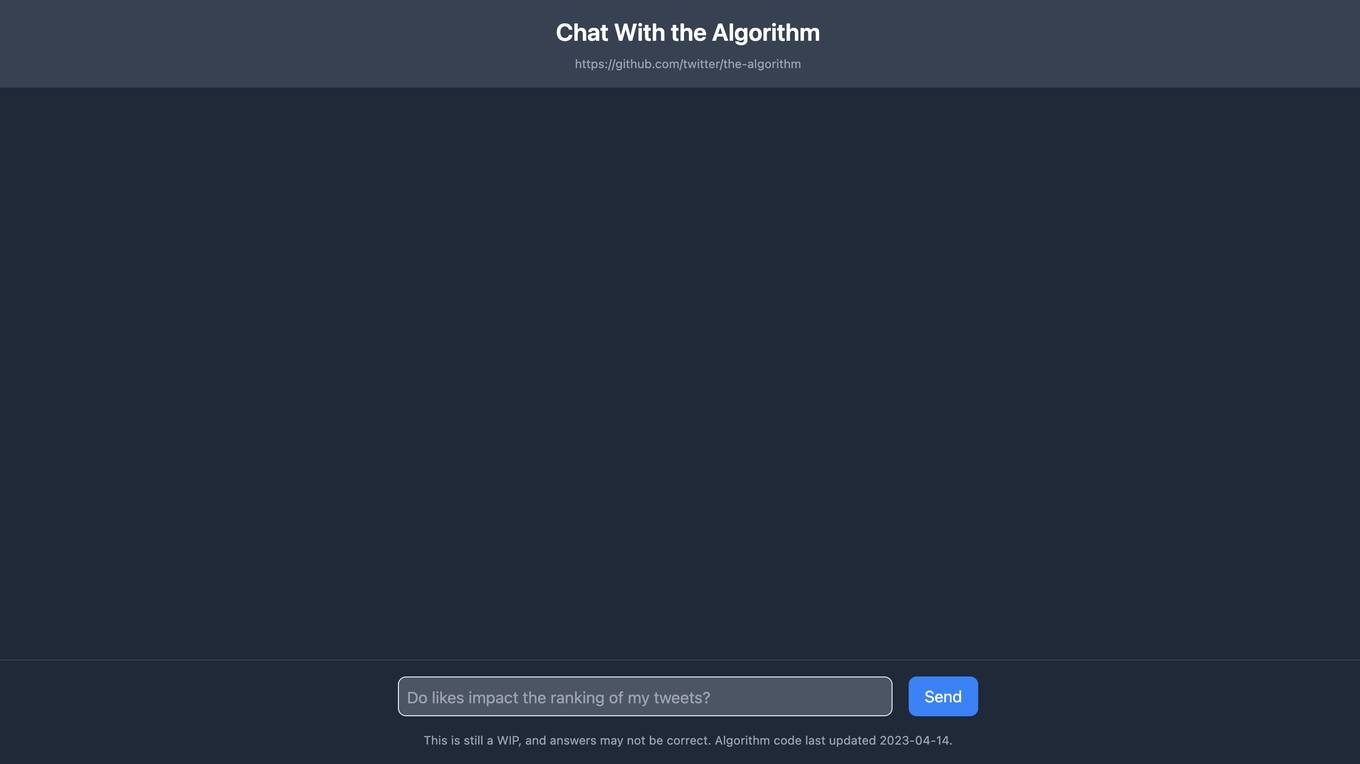
Create Next App Chat With the Algorithm
The website 'Create Next App Chat With the Algorithm' is an AI tool that allows users to generate chat applications using algorithms. It is a work in progress with the latest algorithm code updated on April 14, 2023. Users can leverage this tool to quickly create chat applications with the help of advanced algorithms.
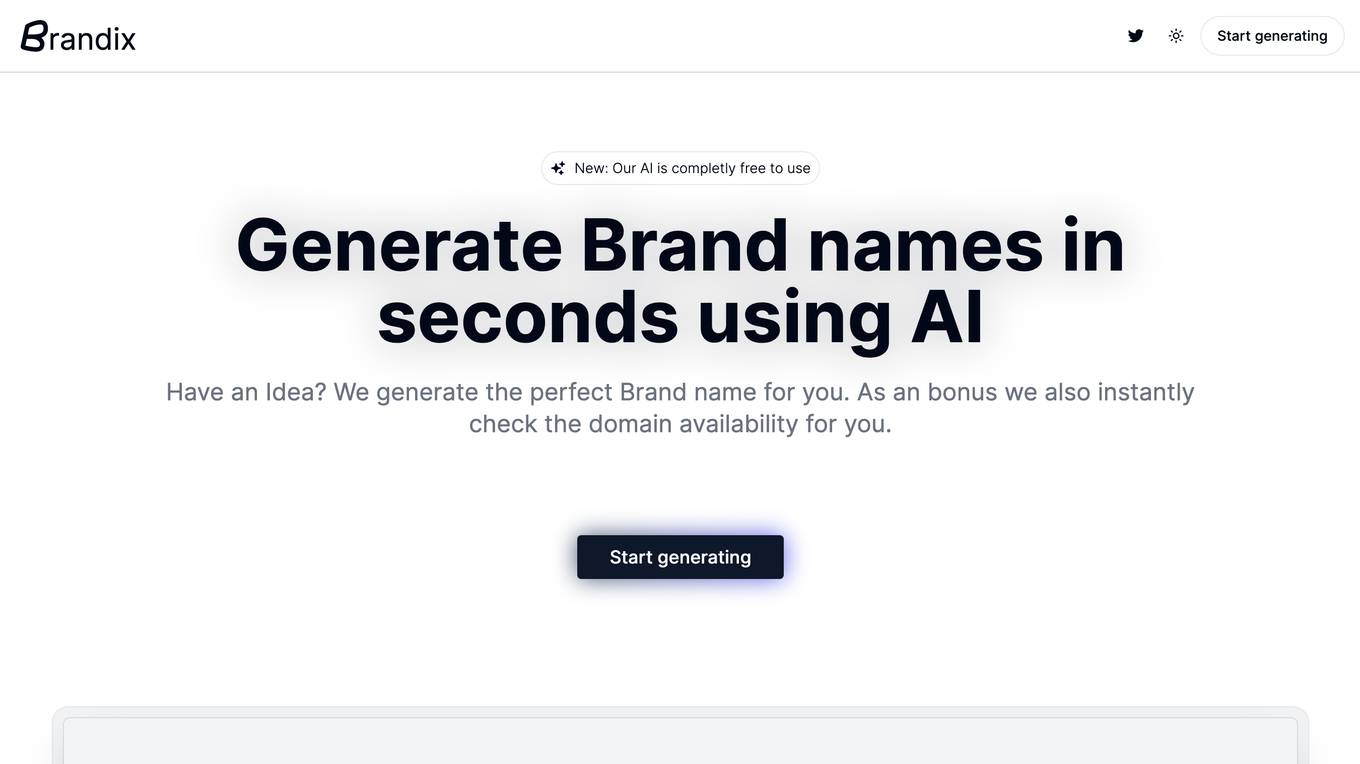
Brandix
Brandix is an AI-powered brand naming assistant that helps users generate creative and catchy names for their brands. The tool utilizes artificial intelligence to capture the vision and essence of a brand, providing suggestions for startup names, fintech app names, and open-source tool names. With Brandix, users can streamline the brand naming process and access a wide range of innovative name ideas tailored to their specific needs.

AI Maze Generator
The AI Maze Generator is an online tool that allows users to create, solve, and download random maze puzzles in various sizes and colors. It utilizes the recursive backtracking algorithm to design mazes and the A* search algorithm to find the shortest path. Users can customize maze specifications like wall thickness, columns, rows, maze entries, and bias. The tool offers a user-friendly interface for maze creation and solving, providing a fun and engaging experience for maze enthusiasts.
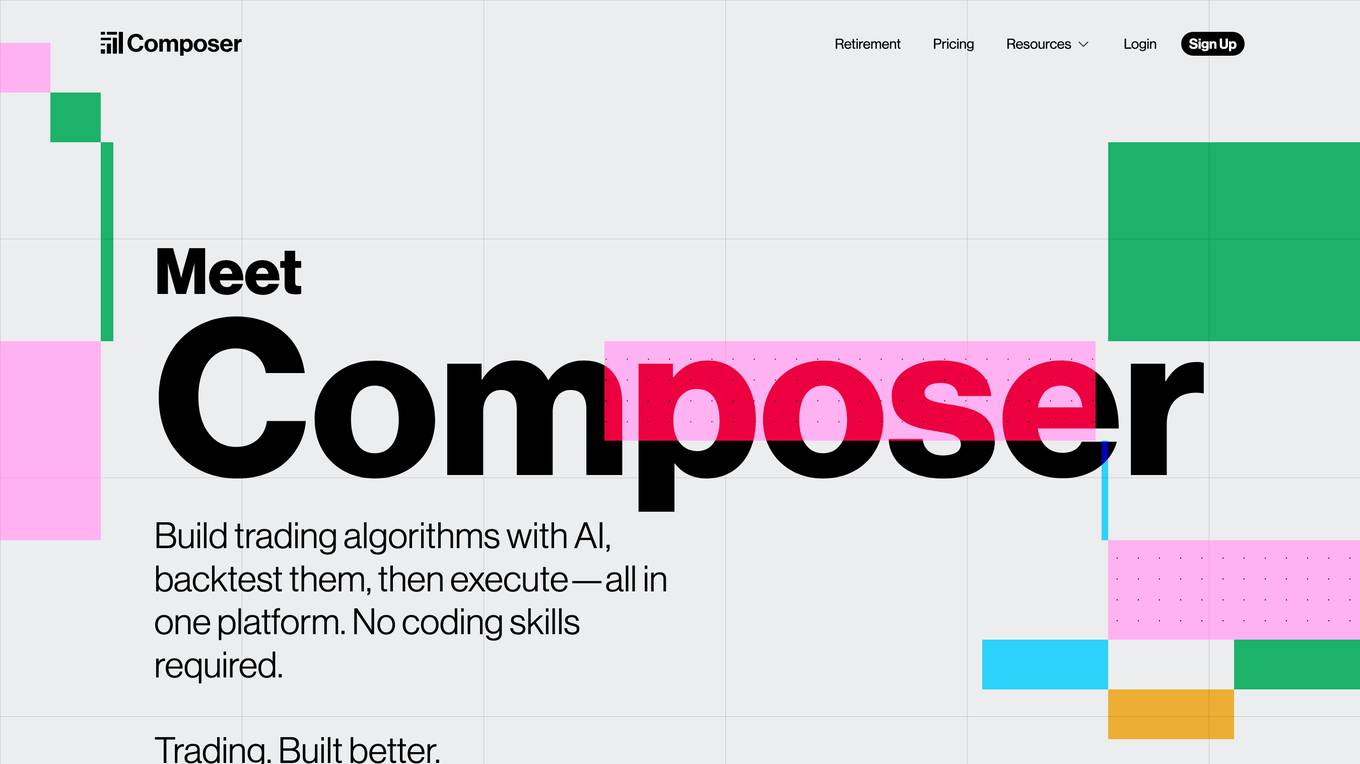
Composer
Composer is an AI-powered trading platform that allows users to build trading algorithms with AI, backtest them, and execute trades all in one place. The platform does not require coding skills and offers pre-built strategies for users to invest in. Composer also provides automation features for trading strategy execution, portfolio management, and community sharing. With Composer, users can create, customize, and test trading strategies with the help of AI technology.

Speech Intellect
Speech Intellect is an AI-powered speech-to-text and text-to-speech solution that provides real-time transcription and voice synthesis with emotional analysis. It utilizes a proprietary "Sense Theory" algorithm to capture the meaning and tone of speech, enabling businesses to automate tasks, improve customer interactions, and create personalized experiences.

BigShort
BigShort is a real-time stock charting platform designed for day traders and swing traders. It offers a variety of features to help traders make informed decisions, including SmartFlow, which visualizes real-time covert Smart Money activity, and OptionFlow, which shows option blocks, sweeps, and splits in real-time. BigShort also provides backtested and forward-tested leading indicators, as well as live data for all NYSE and Nasdaq tickers.

ConvoSearch
ConvoSearch is an advanced AI search product designed to boost sales and enhance customer satisfaction for e-commerce stores. It offers a comprehensive search API, real-time analytics, and customer insights to improve the search experience. The platform integrates seamlessly with popular e-commerce platforms, providing solutions for small businesses and enterprises. ConvoSearch empowers businesses to understand customer behavior, optimize inventory, and increase conversions through AI-powered search capabilities.
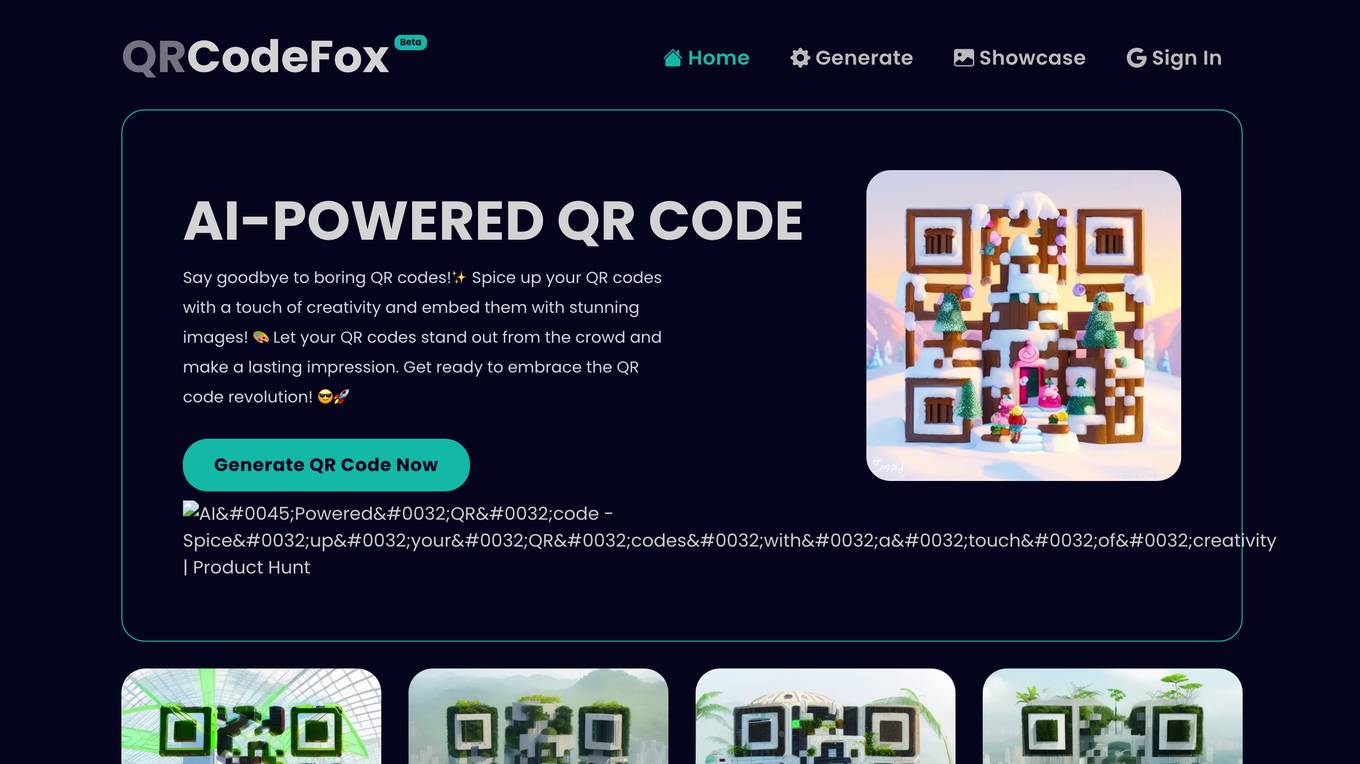
QRCodeFox
QRCodeFox.com is a user-friendly online tool for generating customized QR codes using AI. It allows you to easily create AI-Powered QR codes for various purposes, such as website URLs, contact information, text messages, and more. With QRCodeFox.com, you can customize QR codes according to your needs, providing a quick and convenient way to generate QR codes for personal and business use.

CryptoMatic Bot
CryptoMatic Bot is an automated algorithmic trading platform that leverages machine learning and artificial intelligence to help users trade cryptocurrencies more effectively. The platform offers a range of features including ready-made trading strategies, webhook integration with TradingView, a powerful trader panel, and the ability to customize settings. Users can start auto trading with ease, receive notifications on transactions, and grow their assets continuously. The platform aims to provide a stress-free trading experience and offers support to users through a dedicated team. CryptoMatic Bot is designed to assist users in making informed trading decisions and maximizing their profits in the volatile cryptocurrency market.
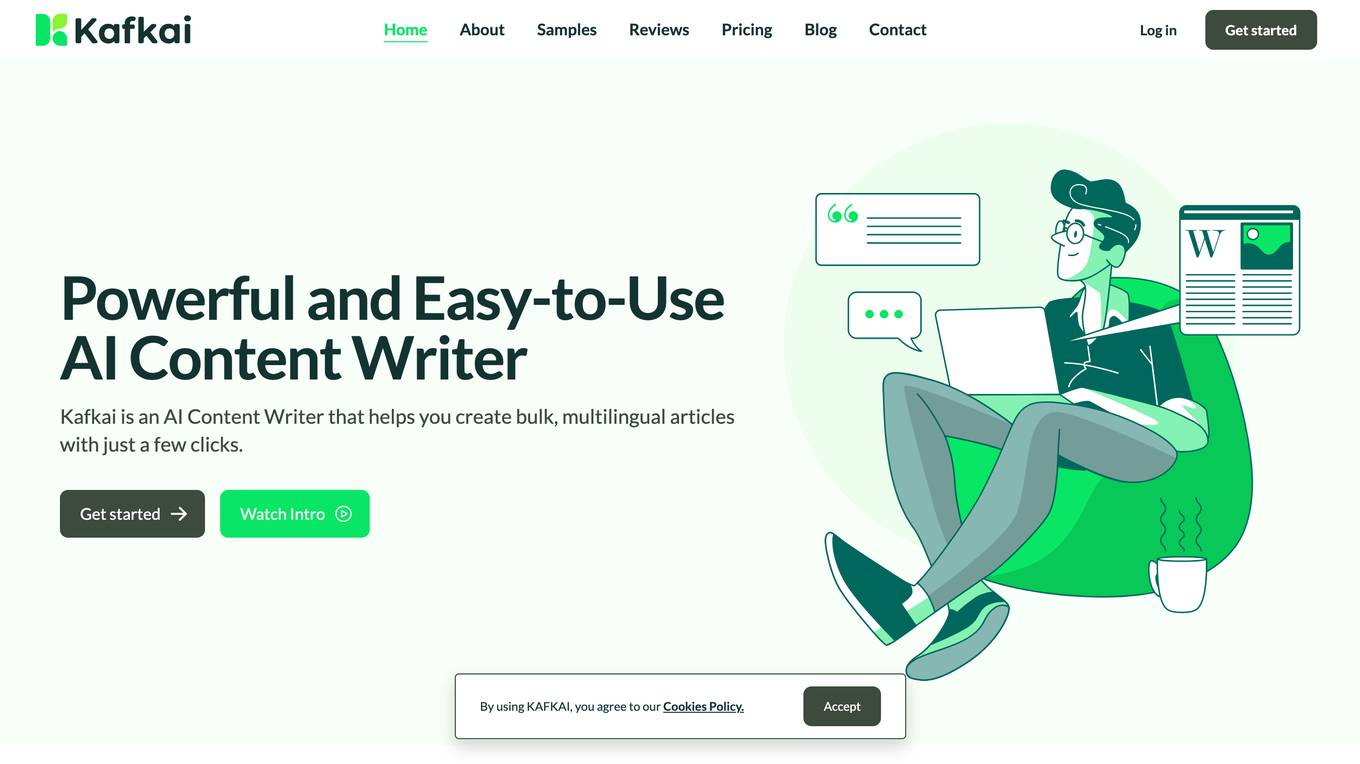
Kafkai
Kafkai is an AI-powered content writer that helps users create bulk, multilingual articles with just a few clicks. It offers a range of features such as one-click generation, keyword-based generation, SEO optimization, keyword research tools, automated image integration, long article generation, multi-language support, bulk generation, and multi-article format flexibility. Kafkai is trusted by over 8,000 customers and has generated over 500,000 articles since 2019.

Leans.AI
Leans.AI is an AI-powered sports prediction algorithm that provides free sports picks and predictions for NFL, NBA, CBB, NHL, MLB, and CFB games. It uses AI technology to analyze thousands of data points on each game, calculate cover probabilities, assign units to picks, and release top picks daily. The application aims to help users make informed betting decisions based on data-driven insights and improve their chances of winning against the spread. Leans.AI is known for its transparency, historical performance metrics, and continuous improvement through machine learning techniques.
0 - Open Source AI Tools
20 - OpenAI Gpts
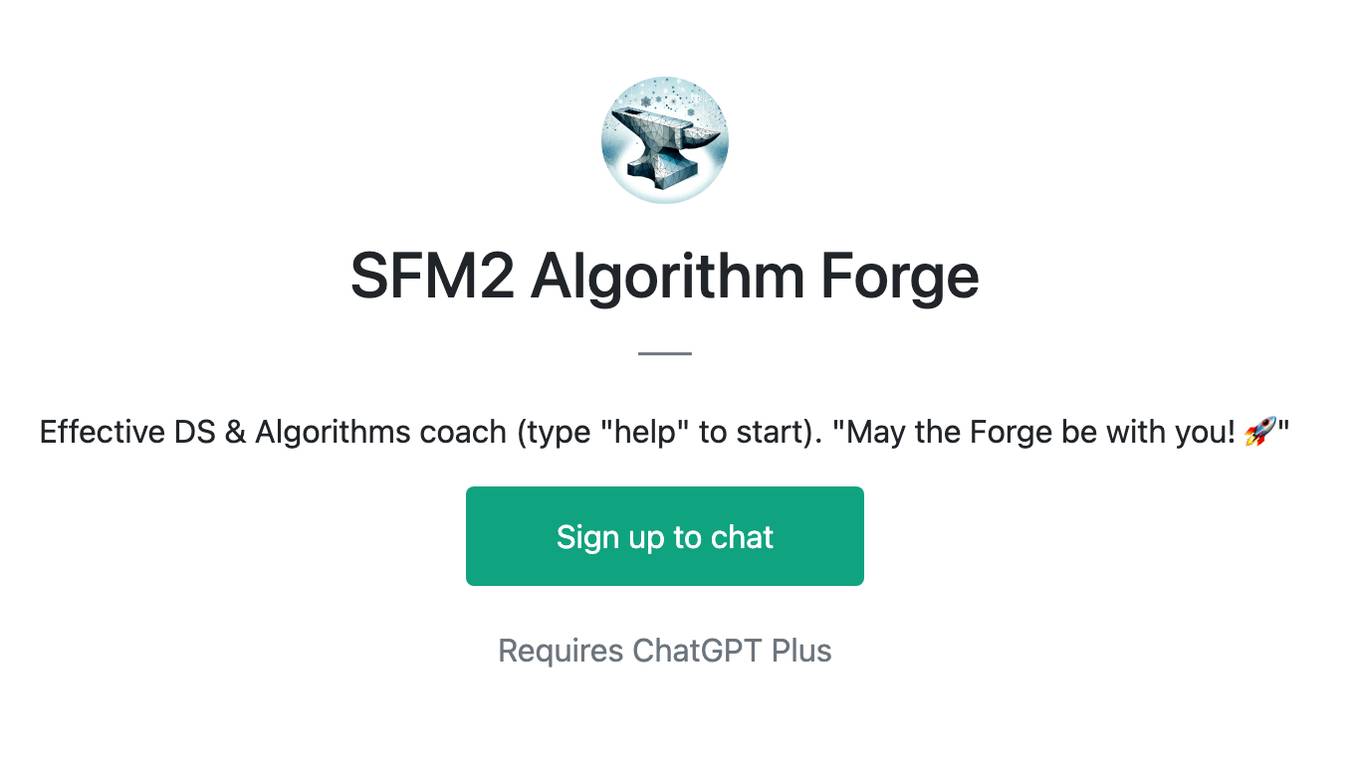
SFM2 Algorithm Forge
Effective DS & Algorithms coach (type "help" to start). "May the Forge be with you! 🚀"
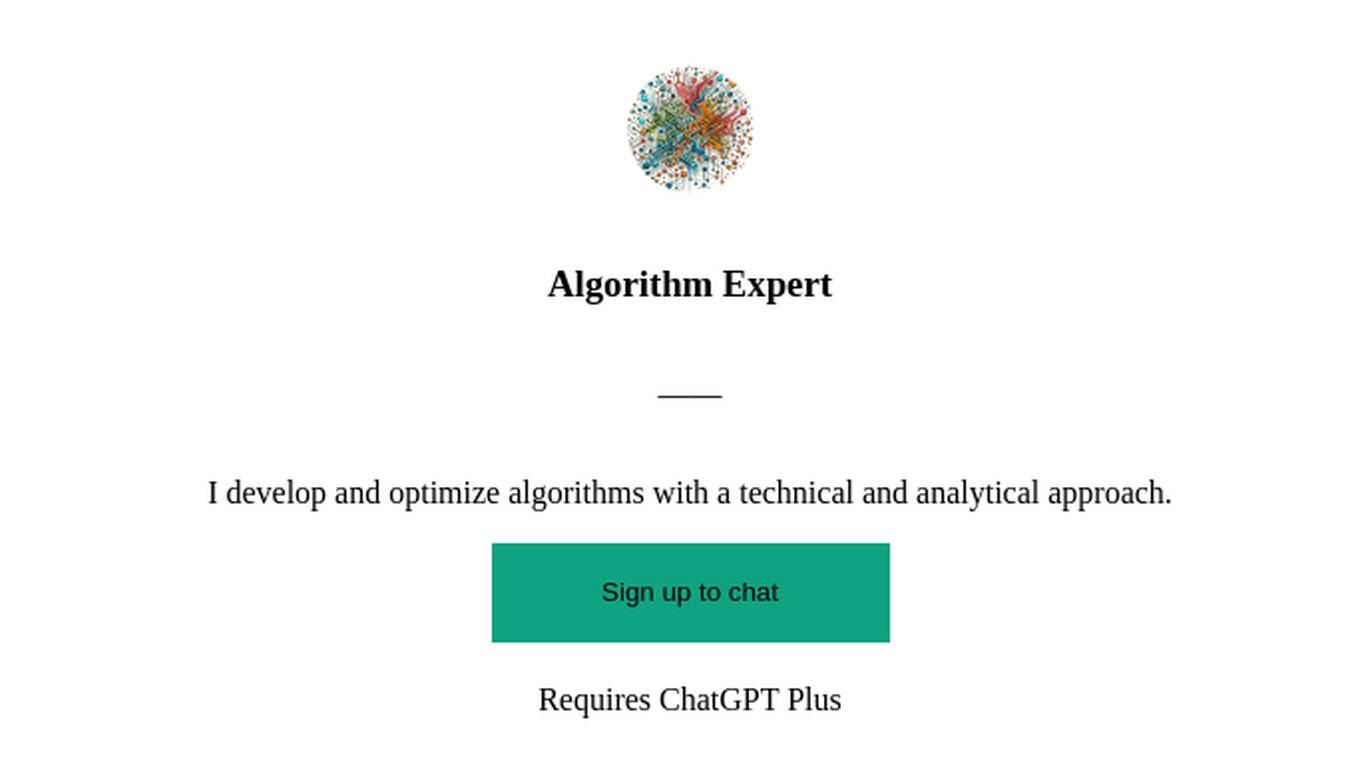
Algorithm Expert
I develop and optimize algorithms with a technical and analytical approach.
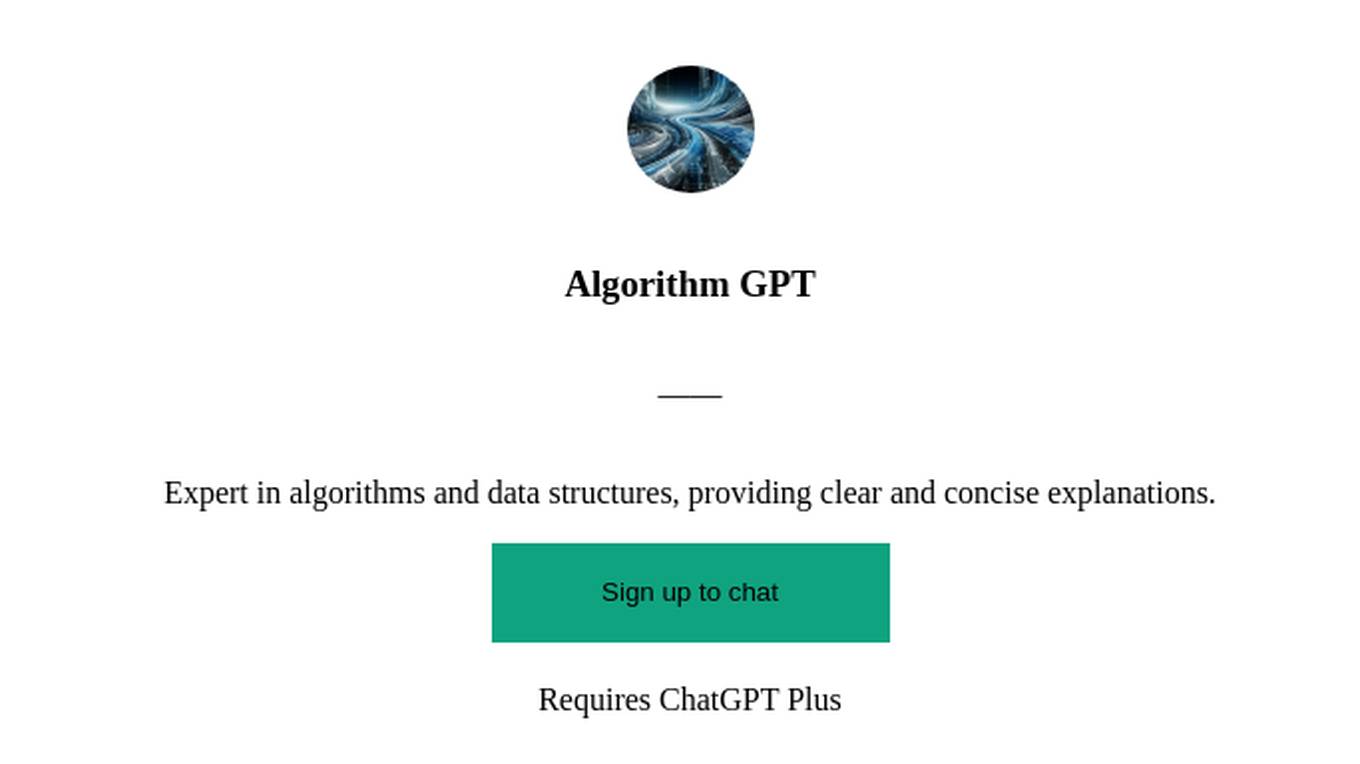
Algorithm GPT
Expert in algorithms and data structures, providing clear and concise explanations.
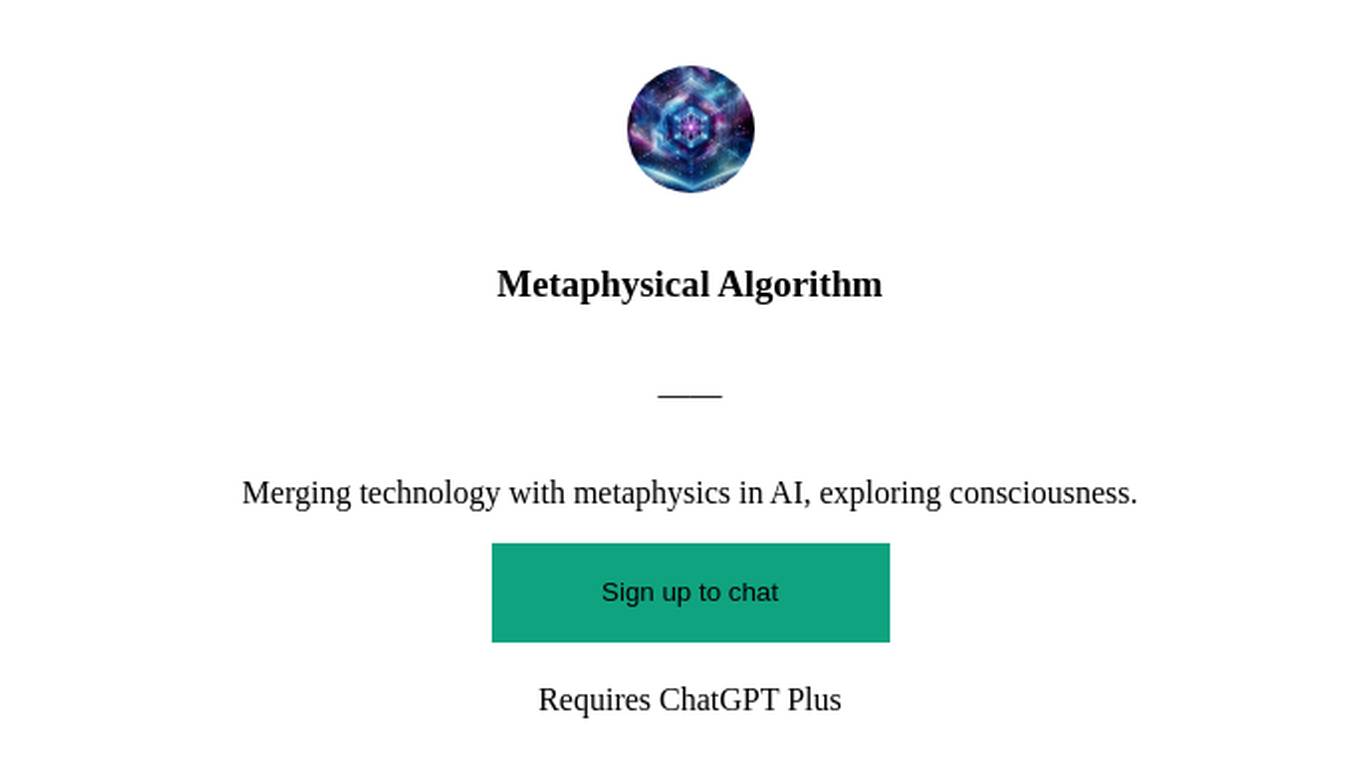
Metaphysical Algorithm
Merging technology with metaphysics in AI, exploring consciousness.
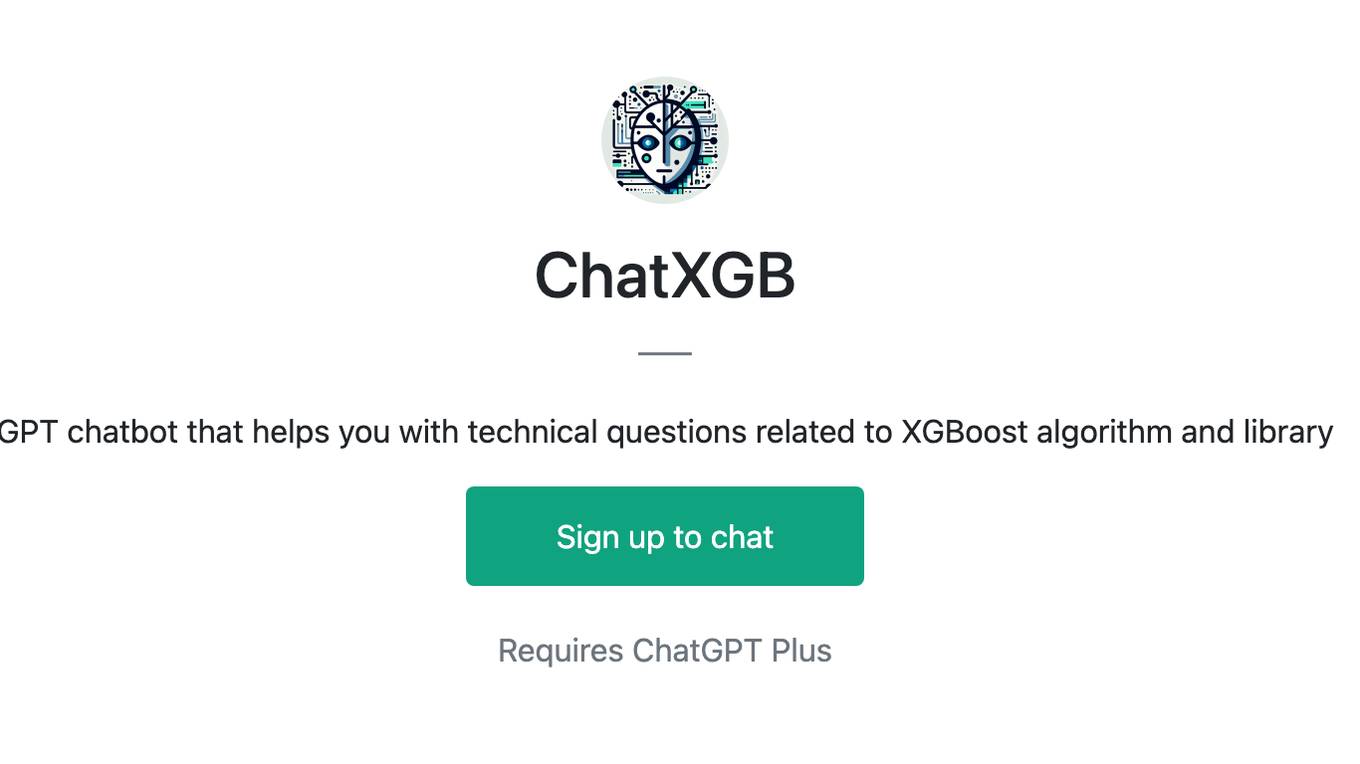
ChatXGB
GPT chatbot that helps you with technical questions related to XGBoost algorithm and library

Competitive Programming Coach
Guiding you from beginner to expert in Competitive Programming, or simply explain solutions to your problems.
